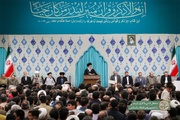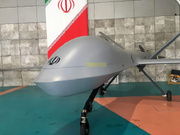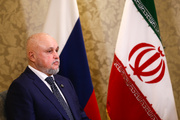According to the provisions of the United Nations Security Council Resolution, which was issued about 8 years ago to approve the JCPOA, the restrictions imposed by this organization regarding the activities related to Iran's ballistic missiles will expire in October 2023.
“Even with the UN restrictions in place, Iran’s missiles and drones are targeting U.S. troops, allies, and partners across the Middle East and increasingly fueling Vladimir Putin’s illegal war of aggression against Ukraine,” said the members.
They also called the bill the "Fight CRIME Act" and introduced its objective as "to constrain Iran’s arsenal, deter malign actors from supporting Iran and its proxies, and keep these dangerous weapons from proliferating onto new battlefields."
In recent months, Ukraine and its Western allies have claimed that the Islamic Republic of Iran has sent drones to Russia for use in the war in Ukraine. Both Iran and Russia have repeatedly rejected claims that Tehran has provided Moscow with drones to be used in the war in Ukraine.
Iranian Foreign Minister Hossein Amir-Abdollahian in a phone talk with his Ukrainian counterpart Dmytro Kuleba rejected Western countries’ allegations of sending drones to Russia for use against Ukraine, saying that Ukraine should be careful not to be influenced by some extreme European politicians.
He said that the foreign policy of the Islamic Republic is completely clear and is based on a single standard which is opposition to the war, adding that Tehran is ready to hold technical meetings with the presence of military experts between the two countries without the need for any intermediaries.
SKH/FNA14020220000023
























Your Comment